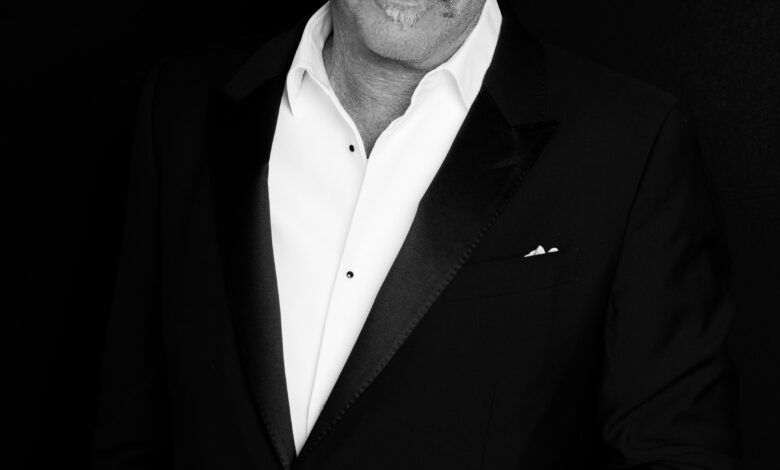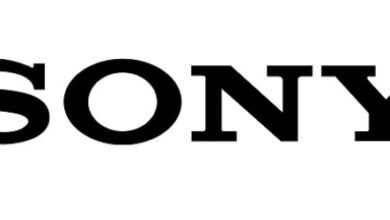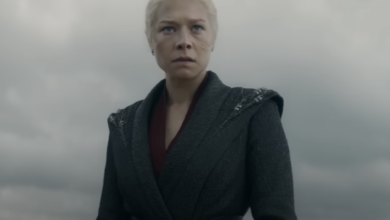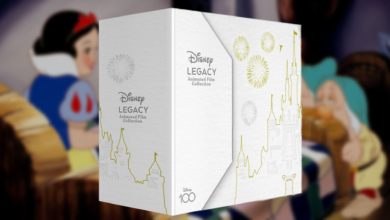Why Kevin Costner Took a Big Leap With ‘Horizon’: “What If Everybody’s Wrong?”

A widow fighting to survive in the aftermath of tragedy. A salesman and his hot-headed wife encountering violent conflict with another family. A mysterious massacre. A British couple wide-eyed at the promise of the West. Each of the stories that fill up the first chapter of Horizon: An American Saga takes on a classic shape within the Western genre, human dramas against an extraordinary thematic backdrop of Manifest Destiny. But Kevin Costner, in his first directorial effort in 20 years throws them all together into one epic, complex, unresolved stew.
That last adjective is especially key. We meet dozens of dreamers in Horizon—Costner’s own character, a loner who becomes embroiled in a feud against his will, doesn’t come into the picture for quite some time—but most of their stories do not end with this film. It’s the opening act, the beginning of what the filmmaker hopes is a multi-film series that he finances himself, and that rounds out into a grand statement about the myths of the West. (Chapters 1 and 2 are being distributed by Warner Bros. in North America, with release dates of June 28 and August 16, respectively. He’s currently in production on Chapter 3.) That gives Horizon a structure I’ve never seen in a film of this scope before—not exactly episodic, but not contained, either.
That narrative riskiness serves as a great metaphor for the overall project of Horizon, which Costner has already poured more than a reported $100 million into. This is a massive, uncertain undertaking about to meet its first audience at the Cannes Film Festival 2024, when it premieres on Sunday. Ahead of the big day, Costner sat down with Vanity Fair to chat all about his big bet.
Vanity Fair: Why Cannes for Horizon? You’ve never been here with a film before.
Kevin Costner: I had this festival in my mind about two years ago. I thought this would be important in the life of this movie because it was independent. This was a big rock that I was going to be pushing uphill, and part of this whole movie thing is how many people can be aware of it, coming in. I’ve had movies that had really little awareness that went on to do really well, but there was a lot at stake here, a lot of money that I was putting forth. And sure, I thought I would love to come to Cannes with a movie. I’d always wanted to do that. I postponed coming here a lot of times because it wasn’t my movie. I thought, I’m going to come one day with my movie. This was always a part of my little secret plan. That didn’t mean that it would happen. I’m so gratified to see what Cannes has been able to do for me; it’s important in the independent film world.
What have you experienced in those terms? How has the festival helped you?
A movie has to ultimately speak for itself. They’re not going to let a movie come here and take a Sunday if they didn’t feel like it—especially an independent movie. They have relationships with big studios and they have to give it a place of honor for whatever reason, but they didn’t have to do that for us. And so the signal is that the movie’s speaking out loud for itself.
This is very much a first movie in a longer saga. I’m curious how you thought about threading everything together for the first movie, to give it the scope of a single film while also setting up something larger.
What I didn’t want to do is bounce back and forth between each scene. I noticed that sometimes I’d stay with a whole section for about 30 minutes or 40 minutes and then move. As long as I felt that it was compelling, as long as I had to get all the characters established and had to do that—I had to resist a lot of conventions that people were wanting.
That’s why I ask.
They were coming to me. I said, “No, I’m comfortable.” “Well, Kevin, nobody knows you’re in the movie.” I said, “They’ll get it. I’ll show up.” And I finally showed up, but I couldn’t do anything about that. I needed, number one, to wean the audience off knowing it’s just not going to be about me. It’s going to be about a lot of us, and I’m going to get my screen time. More of it’s coming in three and four. But I’m gratified that people were accepting these other characters. I could feel it. That they were inside that particular story.
Did you always know your character would enter the movie relatively late into the opening act?
Yeah. Actually, I came a little later [initially], so I have listened to people go, “Could you please come a little sooner?” And so I did. I moved myself up about 10 minutes. [Laughs] I try to listen, but sometimes it just doesn’t make sense to me.
It’s audacious to stay with certain sections as long as you do.
Yeah, the battle’s 45 minutes.
Did you think of yourself as doing something that was daring in that way?
No. I realized it was daring to some people, and I’m thinking—this conventional wisdom thing, it really kills me, because what if everybody’s wrong? Imagine we just stop talking right now. Be like, that was it, that was the interview. But if we’re talking for two hours, we might start to wane. But right now it’s like, “Look, as long as we’re really engaging…” I am really particular about the writing. If it doesn’t work in the writing, I can tell when it’s going too long.
How did you think about each of these stories? So many different characters in this Western backdrop are on their own paths, with their own dramas. What did they say collectively?
This promise of America—people were just moving towards it, and a lot of them were moving toward a myth. A myth that what exactly exists there. There’s a myth of maybe what actually happened there, in how these towns were formed. That was the point—to debunk the history. Like, “That’s not what happened at all.” What happened was, guys came and put stakes in the ground because back in Chicago, somebody knew a train may be coming through here. “I was going to make money in America, and it just disrupted the lives of thousands of people and spelled the death knell of a culture that had been there for 15,000 years because entrepreneurially, somebody goes, Train comes through here, we’re going to make money.”
Having helmed Dances With Wolves and Open Range, you are part of the fabric of the Western in cinema, and you’re talking about myths that are inherent to the genre. How do you think about approaching the Indigenous perspective along those lines, debunking established ideas?
Well, you don’t ever pretend that you’re Native American—that you can relate to that experience. I can’t relate to the African American experience, I haven’t experienced that daily experience out there in the world. I don’t set myself up for that. What I’ve not done is come in as an authority. Simply what I’ve done is, in my heart, understand that they’re just people, and that I have to find the humanity and the ferocity of what happens when somebody comes to take what’s been yours—when somebody destroys your way of life, what that ultimately turns into, which was all-out war. It was a one-sided fight at the end of the day.
Do you pay attention to the evolution of the Western in movies?
No.
No.
No. What I’ve always believed is when Jimmy Stewart came across that lake in How the West Was Won, he looked like a mountain man. So did his canoe, so did the people waiting for him on shore. So right away, I knew the difference between what costumes can make in a movie and what a good score can make in a movie, and what good dialogue can make in a movie—it’s details that make a difference, that create moments you can never forget. I can still see Jimmy Stewart blowing on that little beaver pelt and handing it to Caroll Baker and saying, “No, you keep that.”
There’s a classical quality to this movie in some ways, even though it also feels very modern. You’ve got references to Searchers, How the West Was Won. But the structure is unique.
You don’t have to put a spin on the West to make it dramatic. You just have to understand you’re walking uphill with a sociopath who unbelievably just murdered somebody and then was humiliated by his brother being kicked. You don’t think he wants a bloodlust? The problem was he just picked on the wrong guy who was actually afraid of him. He bothered him in a way that he was unsure of who he was. He was an unhinged person who, for his entire life, bullied people. And today was going to be no different, except it was. And that’s what happens out there. He picked wrong.
Does it frustrate you when you see filmmakers try to put that more dramatic spin on the West?
I don’t think frustrate is the word. It is just like, does it spin me out? Does it take me out?
You had mentioned your desire to bring only the actresses from the film here to Cannes. I saw you say that, and then I saw the movie, and—
And then it made sense.
Then it made sense, because you really do center the women in these stories in way many movies of the genre do not.
It’s almost impossible to imagine a West without women, isn’t it? The West doesn’t carry on without women. And they understand that they were basically trying to keep their families clean and fed, and women were worked to death. And if they lost their man, there’s every opportunity that their life could become something unimaginable, bad. That’s why Sienna [Miller]’s character moves so quickly to bring a man into her life, because she knows how vulnerable she could be, and she doesn’t care about her reputation to do it. And we would taboo that now: That’s too quick, she’s moved too quick.
I am not looking for kudos because women are in it. For me, they’re not in it, they actually dominate the movie, to be honest. Every one of those women dominate when they’re on the screen.
I particularly love the casting of Jena Malone. She brings a totally different energy.
When she whacks Abbey Lee on that hill, just knocks her on the fucking head. [Laughs] It’s great. She’s [playing] a mom. She’s a mom with a guy who’s a salesman, and she’s got a renter who brings in more money than her husband. She’s got a child and she’s living in filth practically. So that’s her setup. And if you let an actress like Jena Malone go? She’s going to go.
This is the first film you’ve directed in about 20 years. Did you feel like a different director, getting back in the chair?
I’ve just always felt like everybody else is a better director than me. I just let them do their thing. That’s what I honestly feel. But when it came time for this, because I’ve done enough movies, I felt like this movie has a tone and it has to be maintained. I don’t know that I could have lived with myself if I saw scenes like where [a female character] is bathing, and somebody said, “We need to cut that out”—because women’s desire to be clean and keep their families clean was utmost. The sensuality or just a plain idea of, “Can I get this dirt off me?” turned into a very sensual moment [in the film] until it was busted by a voyeuristic situation—and we suddenly saw the scene for what it was, which was they ruined it. The minute we realized other men were watching her, we didn’t like it. What does that say? It’s simple: There’s peeping Toms in every decade, every century. There’s abusive people in every decade, every century. We have a lot in common with the people who came West. What we can’t compare, though, is how difficult it was for them. How dangerous.
Do you have a start date for part three yet?
Yeah, I’m three days into it, man. And then I go back. I’m fighting to shoot 10 more days, 12 more days if I can.
Has that fight gotten easier or harder, the deeper you’ve gotten into this?
It’s harder. It’s harder because it’s important to me that it be better that the story completely [works]. That’s why I’m not having to be, “Oh my God, it was successful.” I got to reinvent some story. I know what the story is, but it’s important to me that it just gets better and better.
This interview has been edited and condensed.
Listen to Vanity Fair’s Little Gold Men podcast now.
-
Cover Star Chris Hemsworth on Fear, Love, and Escaping Hollywood
-
The Vatican’s Secret Role in the Science of IVF



